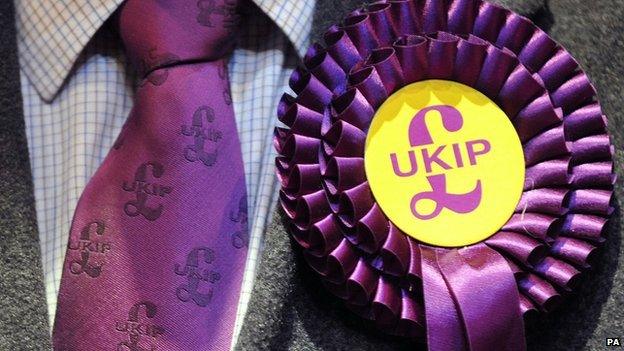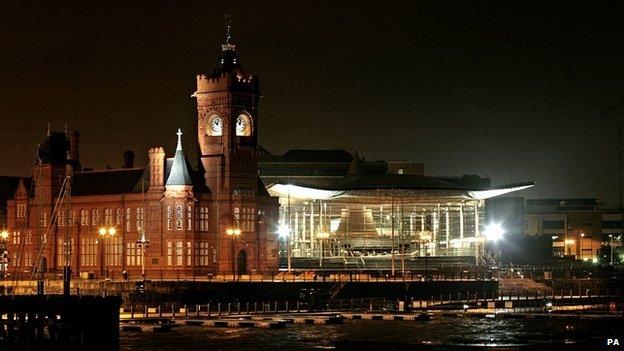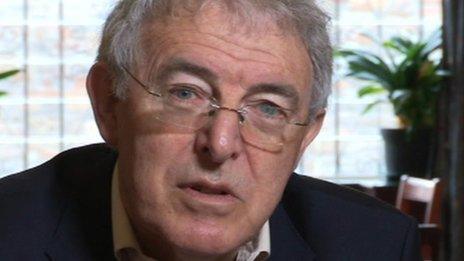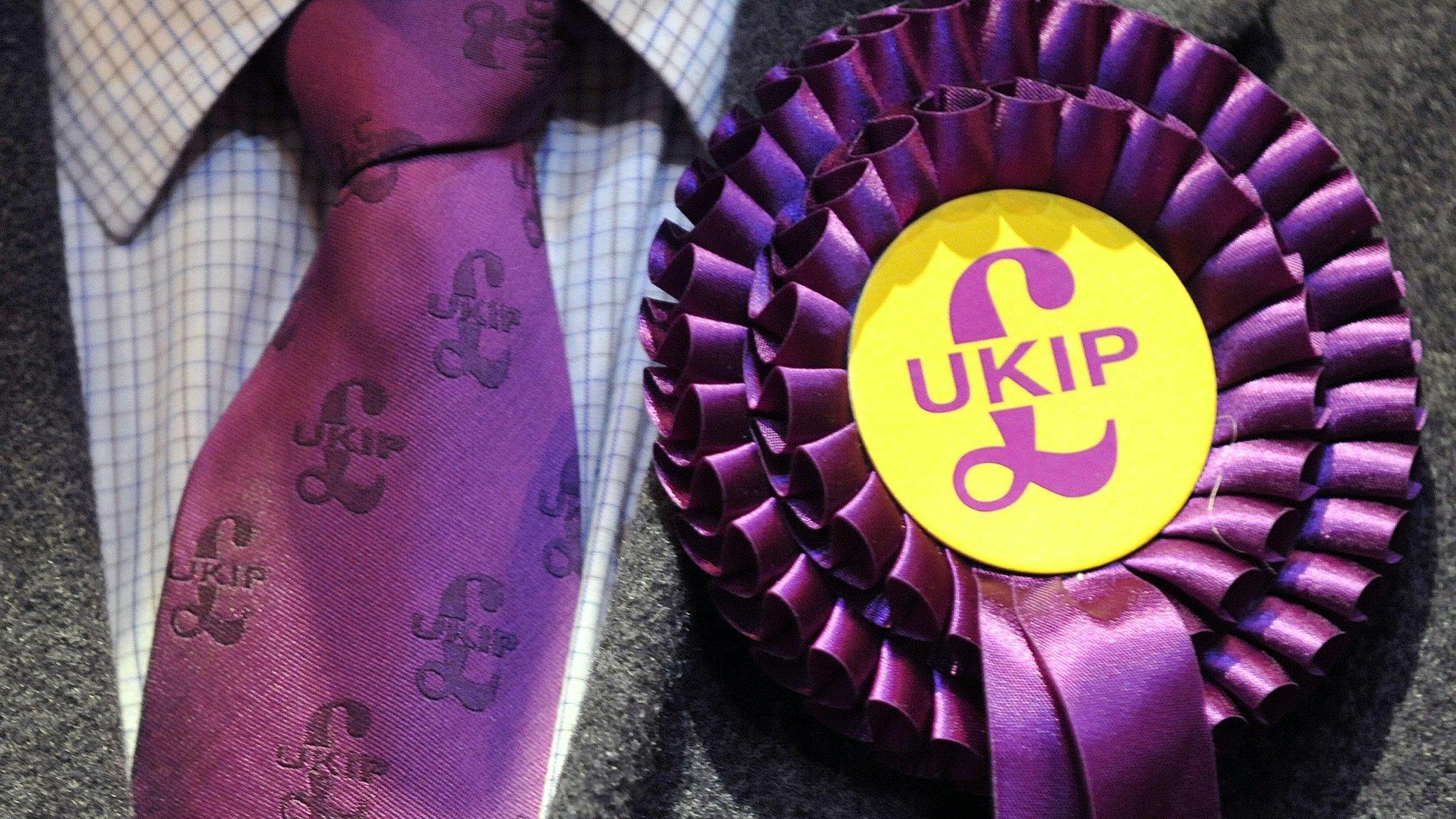First UKIP AMs to be elected, poll suggests
- Published

Poll analysis indicates UKIP could leap frog the Lib Dems to become the fourth largest assembly party
Labour will struggle to win a majority at the next assembly election and UKIP will win its first seats in Cardiff Bay, a new opinion poll indicates.
The survey, commissioned by BBC Wales, put Labour on 36% in the assembly constituency vote, Plaid Cymru on 24%, the Conservatives at 19%, UKIP on 13% and the Liberal Democrats on 5%.
Analysis suggests Labour would win 28 seats - down two - and Plaid Cymru 14.
It gives the Conservatives 11 seats, UKIP five and the Lib Dems just two.
The Liberal Democrats currently have five AMs.
The analysis was conducted by Cardiff University's Wales Governance Centre, external.
Major breakthrough
On the top-up regional list, 38% said they would vote Labour, 22% Plaid Cymru, 21% Conservative, 10% UKIP and 4% Liberal Democrats.
The poll indicates a decline in support for Labour, who were scoring consistently above 40% support in Welsh opinion polls last year.
It also gives a boost to Plaid Cymru, who would overtake the Conservatives as the second-largest party in Cardiff Bay.
Representation for UKIP in the assembly would be a major breakthrough for the party, although polling experts said Nigel Farage's team faced a challenge in sustaining their good performance in European elections into next year's general election and the 2016 assembly election.
UKIP finished second in last month's Euro poll in Wales, coming within 0.6% of beating Labour.
Prof Roger Scully, of the Welsh Governance Centre, said: "Labour are still in the lead but their vote share for both general and assembly elections has been sliding in Wales for about the last 18 months.
"Compared to other polls Labour are down in terms of support for the national assembly elections - on the constituency vote they are down about 10 percentage points over the last year to 15 months.
"The polls until fairly recently were showing Labour a long way ahead of their opponents; now it's starting to look rather more competitive."

The poll suggests current Lib Dem AMs could be chewing their finger nails when the polls close in 2016
On UKIP, he said: "I have to say, given this poll was done fairly soon after the European elections, I actually would have expected them to do a bit better,
'Unremittingly grim'
"The other interesting thing we see in this poll is increasing support for Plaid Cymru.
"Plaid have been slowly edging up in the polls in Wales over the last year or so, and this poll sees them make another move forward, and while Plaid are not yet in a position where they are challenging for first place, this is much the best level of support Plaid have seen in poll for national assembly elections for several years, and that's clearly encouraging for them.
"For both the parties in the UK coalition their support is holding relatively steady.
"While for the Conservatives that's holding steady at a fairly decent level of support, for the Liberal Democrats the news continues to be unremittingly grim."

PARTIES' POLL REACTION
•UKIP Wales told BBC Wales it expects to see a rise in future polls once its domestic policies are published
•Plaid said it is "encouraging to see this poll reflect the growing support" for the party
•Welsh Labour said it showed "clearly that the people of Wales trust Welsh Labour to take the difficult decisions"
•The Welsh Conservatives said with two years to go to the assembly elections it would "continue to be the party of low tax and big ideas"
•And the Welsh Liberal Democrats said they will campaign on "our record, having ensured every single school across Wales receives £918 per pupil on free schools meals to make our society fairer"

ICM Research interviewed a random sample of 1004 adults aged 18+ by telephone between 22nd May- 1 June, 2014. Interviews were conducted across Wales and the results have been weighted to the profile of all Welsh adults. ICM is a member of the British Polling Council and abides by its rules.
- Published11 June 2014

- Published9 June 2014

- Published26 May 2014
